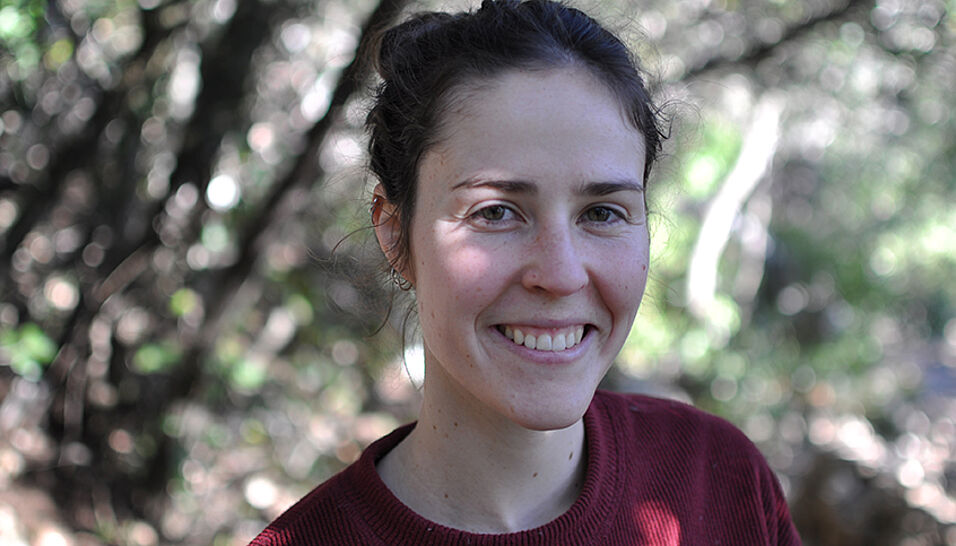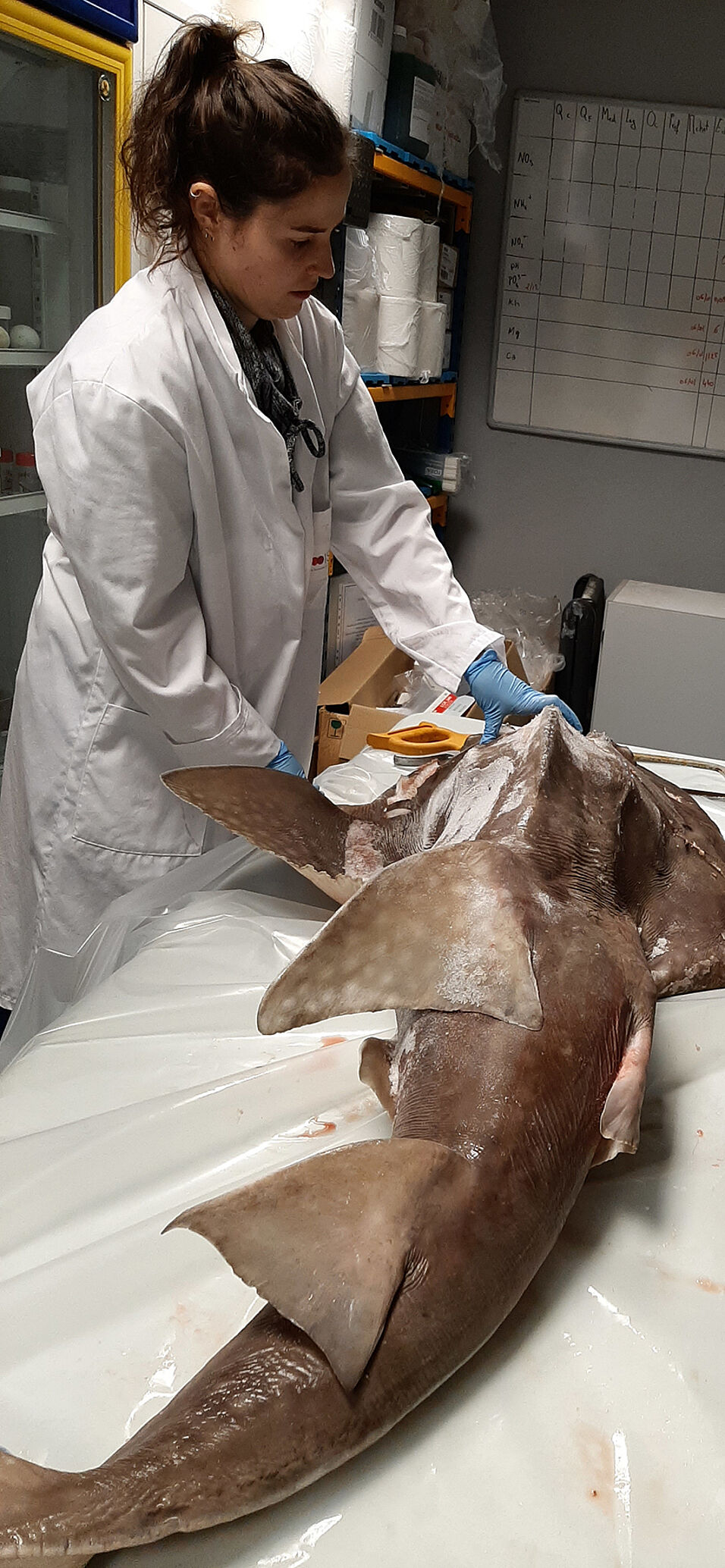What is fascinating about your research area?
Fidji Berio: I am passionate about chondrichthyans (sharks, rays, skates, and chimaeras) and especially about how they developed a variety of mineralised tissues, which some are unique to this clade. I started working on this group while the diversity of mineralised cartilage patterns was starting to be uncovered and it is fascinating how many methods that were already used on classical model organisms can reveal unsuspected histological and morphological patterns in cartilaginous fishes. My research combines 3D geometric morphometrics, histology, and machine learning to uncover evolutionary, ecological, and developmental aspects of the history of chondrichthyans.
Which central message should your students remember?
Fidji Berio: I hope my students comprehend how diverse teeth are and that they convey ecological and phylogenetic signals that intertwine. I hope they will discover the fascinating world of chondrichthyans beyond the restricted image they are often assigned. I wish they will be stimulated by the challenges facing the scientific community and by the broad range of methods we can use to make ecological and evolutionary inferences about this group of organisms.
Why did you decide to do research and teach at our Faculty?
Fidji Berio: I met members of Prof. Jürgen Kriwet’s team during conferences and we share many aspects of our research interests and methods such as the evolution of tooth morphology in sharks and geometric morphometrics. My venue is the opportunity to work on fossils, which is essential for understanding the evolution of chondrichthyan mineralised tissues. I already taught tutorials and practical work at my former University but never had the chance to prepare a whole course about the core of my research interests and I look forward to sharing my research expertise with the students of the University of Vienna.
Which three publications characterise your work?
- F. Berio, Y. Bayle, D. Baum, N. Goudemand & M. Debiais-Thibaud (2022). Hide and seek shark teeth in Random Forests: Machine learning applied to Scyliorhinus canicula. — PeerJ.
- F. Berio, M. Broyon, S. Enault, N. Pirot, F. A. López-Romero & M. Debiais-Thibaud (2021). Diversity and Evolution of Skeletal Tissues in Chondrichthyans. — Frontiers in Ecology and Evolution, 9, 223.
- F. Berio, A. Evin, N. Goudemand & M. Debiais-Thibaud (2020). The intraspecific diversity of tooth morphology in the large-spotted catshark Scyliorhinus stellaris: insights into the ontogenetic cues driving sexual dimorphism. — Journal of Anatomy, 237(5), 960-978.
Thank you & welcome to our Faculty!
- Fidji Berio finished her PhD on "Physical and genetic factors impacting development and evolution of elasmobranch odontodes" at the ENS Lyon & Institute of Evolution Sciences of Montpellier and holds master from the European Institute for Marine Studies. Her research combines 3D geometric morphometrics, histology, and machine learning to uncover evolutionary, ecological, and developmental aspects of the history of chondrichthyans. Since 2021, she also works as science communicator for Futura Sciences.
- Working group / host professor: Evolutionary Morphology Research Group / Jürgen Kriwet
- Course in the winter term: Funktionale Evolution von Kieferstrukturen bei Wirbeltieren (280100 VU)


